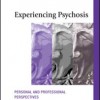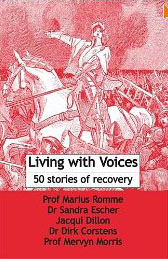After one hundred years of denial and ignorance, it was finally accepted 20 years ago that sexual, physical, and emotional abuse of children, along with neglect, was a genuine and common phenomenon with potentially devastating long term consequences for the mental health of the survivors.
Until recently, there has been one exception to this rule. Sufferers of psychotic experiences were excluded. Their distress was caused predominantly by genetics or biology, or so they were told. Recent research has shown this to be a fallacy. Some of the recent studies even suggest that psychosis is the diagnostic category most likely to have experienced severe childhood trauma.
This paper summarizes the historical context and offers a pr cis of the most important recent research findings. In keeping with the ethos of this journal we offer a case study to illustrate the effectiveness of psychotherapy for trauma survivors with psychosis. We end with an appeal to collaborate with the users movement to take this agenda forward.
cis of the most important recent research findings. In keeping with the ethos of this journal we offer a case study to illustrate the effectiveness of psychotherapy for trauma survivors with psychosis. We end with an appeal to collaborate with the users movement to take this agenda forward.
 A positive piece published in the Guardian, 5th July 2011 by Mary O’Hara about this important new book – David’s Box: The journal and letters of a young man diagnosed as schizophrenic, 1960-1971, for which I have written a foreward.
A positive piece published in the Guardian, 5th July 2011 by Mary O’Hara about this important new book – David’s Box: The journal and letters of a young man diagnosed as schizophrenic, 1960-1971, for which I have written a foreward.

 A new analysis of the hearing voices experience outside the illness model resulted in accepting and making sense of voices. This study of 50 stories forms the evidence for this successful new approach to working with voice hearers.
A new analysis of the hearing voices experience outside the illness model resulted in accepting and making sense of voices. This study of 50 stories forms the evidence for this successful new approach to working with voice hearers. cis of the most important recent research findings. In keeping with the ethos of this journal we offer a case study to illustrate the effectiveness of psychotherapy for trauma survivors with psychosis. We end with an appeal to collaborate with the users movement to take this agenda forward.
cis of the most important recent research findings. In keeping with the ethos of this journal we offer a case study to illustrate the effectiveness of psychotherapy for trauma survivors with psychosis. We end with an appeal to collaborate with the users movement to take this agenda forward.